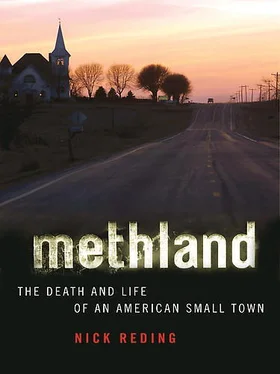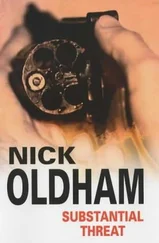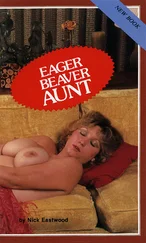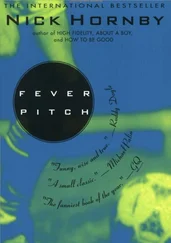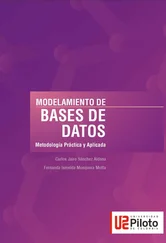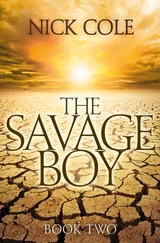Sitting in Las Flores that night, I was reminded of a talk I’d had a year before with Phil Price, who had since retired as the special agent in charge of the Georgia Bureau of Investigation. At the time, Price was simultaneously investigating eleven execution-style murders of Mexican nationals, all committed in empty mansions in quiet Atlanta suburbs, all meth-related. In discussing the murders, Price had foreseen the Combat Meth Act’s ultimate weakness, long before it was passed.
“Look,” he’d said in his thick North Georgia accent, “I’ll get in trouble for saying this, but the Combat Meth Act will only take the little bit of the meth business away from the dipshits with the Bunsen burners and the Budweiser chemistry set and give it to the only people who’ve known all along what to do with it: the Mexican DTOs.
“For a while,” he went on, “people will applaud the government, and things will get remarkably better. But mark my words: it’ll get worse from there. Because none of this is about a drug. It’s about a system of government and an economy. The Combat Meth Act will only serve to highlight our immigration policy, and what a holy crock of shit it is. But no one will see that. All they’ll see is a short-term victory against meth. By the time the crank comes flowing back,” concluded Price, “the government and the media will be long gone, and we’ll be stuck worse than ever.”
During the three and a half years I went back and forth to Oelwein, I told myself that I was searching for the meaning of meth in small-town America. That is certainly true. But I think I was also looking for the meaning of a small town in my own life and in my family’s history. And what, if anything, had changed so profoundly that when I would tell my father what I was seeing in Iowa, he was made to wonder if he would even recognize the place whence he comes.
Rural America remains the cradle of our national creation myth. But it has become something else, too—something more sinister and difficult to define. Whether meth changed our perception of the American small town or simply brought to light the fact that things in small-town America are much changed is in some ways irrelevant. In my telling, meth has always been less an agent of change and more of a symptom of it. The end of a way of life is the story; the drug is what signaled to the rest of the nation that the end had come.
The truth is that, in the weeks I drove around Illinois, Kentucky, Alabama, Georgia, and Missouri, any town in which I stopped for a day or two would have satisfied the criteria as a setting for a book about meth—meth was a part of life in all of them. It’s fair to say I focused on Iowa beginning in 2005 not because of the record number of labs in the state or because I was quick to develop a relationship with Clay and Nathan, but because Iowa is the place where my father’s branch of the Reding family had lived since the mid-nineteenth century. As it turns out, my father’s life fits into the conundrum of methamphetamine’s link with the rural United States, not just because he comes from Algona, but because he worked forty-two years in the industry that I have come to see as a force behind the difficulties faced by places like Algona and Oelwein: Big Agriculture.
My great-grandfather Nicholas Reding came to Algona from the Franco-Prussian principate of Luxembourg in 1868. With him he brought his second wife (the first had died) and the fifteen children from his two marriages. After learning that the local schoolteacher would be educating his children in English, my great-grandfather became a teacher himself, founding his own school specifically so he could educate his children in German.
Louis Reding was the youngest of Nicholas’s children, born in 1899. Louis spent his whole life in Algona, where he worked as a tractor partsman at the International Harvester shop. He died in 1979. Alice, my grandmother, was born in Lu Verne (pronounced “Laverne”), Iowa, twelve miles south of Algona. Alice was one of four children of a woman who must, by the fertility standards of the Reding clan, have seemed just a hair shy of barren. Alice was five feet tall; she worked as a teller at the Iowa State Bank for fifty-one years. She died in 1989, at the age of eighty-eight.
My father, Nicholas Reding, named for his grandfather, was born the youngest of four in November 1934; his sister Roz is the oldest, followed by twins, Jan and Joe. My father was small as a boy, with blond hair and dark brown eyes. During the Depression and war, it was often up to my father and his brother to kill pheasants, pigeons, or squirrels for supper. In the winter, they market-hunted jackrabbits, by which it is meant that they went out into the fields at night in the backs of trucks and killed the animals as they were temporarily paralyzed by the headlights. My father and uncle filled keg-barrels with the rabbits they shot, for this is how canneries in Sioux City and restaurants in Fort Dodge came about their meat during the rationed years in World War II. In the summer, they fished for perch and catfish in the East Branch of the Des Moines River—which flows 320 miles away, past the cabin in Ottumwa where Lori Arnold once lived.
My father went to Iowa State in Ames in 1952. He was seventeen. By then, his hair was well on its way to turning black; he was small, like his mother, and weighed just 110 pounds his freshman year. If it weren’t for his three scholarships, he would never have been educated beyond high school. A baseball scholarship paid for his room, a chemical engineering scholarship paid for his board, and a Reserve Officer Training Corps (ROTC) scholarship paid for his books. There is a photo of him as a freshman, standing a head shorter than most other members of Iowa State’s varsity baseball squad. That photo has always had a complicated effect on me. On the one hand, I feel a tremendous amount of pride that my father ever made it out of Algona, Iowa. On the other hand, I feel a comic sense of disbelief, for my father, standing on the end of a line of tall, strapping young men, looks impossibly young and small. It’s surprising that he even made it through the brutal winters, never mind that he was able to swing a thirty-four-inch wooden bat at eighty-five-mile-per-hour fastballs without being blown over. What’s more incredible still is the remarkable life he would go on to lead.
By his sophomore year, my father had grown to five feet nine and had gained thirty pounds—hardly the stuff of legend, but enough to be starting in center field for what at the time was a powerhouse of a collegiate baseball team. Iowa State was the runner-up that year in the College World Series—my father was the MVP. He set a National Collegiate Athletic Association record for the number of stolen bases in a game—six, including stealing home—that stood for many years. At the end of the season, at the age of nineteen, he was drafted in the first round by the New York Yankees and the St. Louis Cardinals at a time when the rivalry between them was one of the most enduring and storied rivalries in sports.
My father, though, didn’t believe playing sports was a reliable road out of poverty. Despite being drafted again by the Yankees following his junior year, he stayed at Iowa State to finish his chemical engineering degree. In 1955, he was offered a job with Monsanto, in St. Louis, Missouri. He arrived in the city with two shirts, two pairs of shoes, two ties, and one suit, and he moved into a boarding house. He met my mother at Monsanto, where she was working as a secretary. My maternal grandmother, Mildred Viola Nicholson, two decades removed from her years in Ebo, Missouri, took an immediate liking to my father. She saw a kindred spirit in a boy from the country who’d come to a grand and important American city in hopes of making his way. Mildred’s first husband had left her, my mother, and my aunt, and Mildred had worked all her adult life as a single mother, first as a maid and then as a cook in a downtown cafeteria called Miss Hulling’s. When my father became ill with influenza in 1956, my mother and grandmother took the bus every morning and every evening for three weeks to care for him at the boarding house until he was well again. My parents were married in 1958.
Читать дальше
